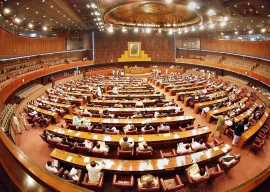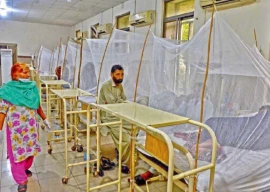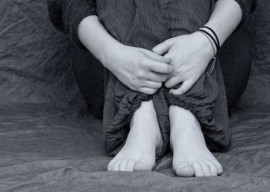
The me too movement shook the globe changing how people perceived workplace harassment and its effects were felt in Pakistan too with reported cases seeing an uptick especially in government offices.
Laws regarding protection of harassment were introduced more than a decade ago, with the Protection Against Harassment of Women at Workplace Act being enacted by the federal government in 2010.
In 2012, the said law was amended, and it was also implemented in the country’s most populous province, Punjab.
According to documents obtained by the Express Tribune, ever since the enactment of the law the Punjab Ombudsman’s office has received more than 5600 petitions most of which are from female employees in government offices.
However, ever since the global push to make the workplace safe for all, the department has started receiving 200 to 250 petitions every month and hears about 6 to 8 cases of harassment daily.
READ Sexual harassment suspect booked
Punjab Ombudsman Nabila Hakim Khan, while talking to The Express Tribune, acknowledged the rise in cases of harassment being reported in various governmental departments of the province.
“Harassment occurs when men or women take advantage of their status and the highest numbers of cases come from the education and health department,” she said.
Inappropriate jokes or gestures, touching without consent, sending sexually explicit images, or even prolonged gawking fall into the category of sexual harassment and Nabila informed that such complaints were on the rise as well.
Responding to a question about what the provincial Ombudsman was doing to encourage more women to report, she said, “we have made recommendations to the government to appoint men and women as focal persons for preliminary inquiry into harassment of women in all provincial departments.”
Even though the number of reported cases might be rising, it is still low owing to a variety of factors, as per, Lahore based psychologist, Dr Shehzad Ahmad Tahir. He said that since reporting is not encouraged in the country, harassed individuals are forced to return to everyday life without seeking any support.
“Victims go into a state of trauma and it can take anywhere between 3 to 6 months to recover provided they get help or seek counseling,” he informed.
However, with mental health counseling a taboo and harassment an even bigger taboo many continue to suffer mental anguish. “Women are the worst affectees as they are expected to bear everything in silence. There should be an awareness campaign to provide extra support to working women,” Tahir told The Express Tribune.






1730793476-0/bella-(1)1730793476-0-165x106.webp)














1730706072-0/Copy-of-Untitled-(2)1730706072-0-270x192.webp)
COMMENTS
Comments are moderated and generally will be posted if they are on-topic and not abusive.
For more information, please see our Comments FAQ